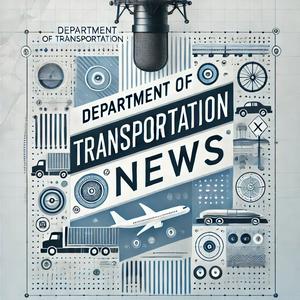Welcome back to the DOT Dispatch, where we break down the latest from America's roads, rails, and runways. This week, the biggest headline from the U.S. Department of Transportation is Transportation Secretary Sean P. Duffy and FMCSA Administrator Derek Barrs announcing bold actions to secure our highways. They're mandating commercial driver's license tests in English only, beefing up registration with ID verification, and shutting down rogue CDL training mills and non-compliant carriers.
These moves build on Duffy's recent crackdowns, like Operation SafeDRIVE, which yanked nearly 2,000 unqualified truckers off roads across 26 states and led to arrests. He also finalized a rule blocking unqualified foreign drivers from big rigs, citing 17 fatal crashes and 30 deaths in 2025 alone from non-domiciled drivers. Duffy put it bluntly: "Safety first— we're stopping unqualified drivers from endangering American roadways." A separate audit in Illinois found nearly 20% of non-domestic CDLs issued illegally, fueling the urgency.
For everyday Americans, this means safer drives—fewer crashes from underqualified truckers hauling goods past your local grocery. Businesses, especially trucking firms, face tighter hiring: verify visas like H-2A or H-2B early, or risk fines, potentially reshaping a workforce of 200,000 drivers as licenses expire over two years. States get hit too, needing DHS SAVE checks and in-person renewals, though a court stay has paused some enforcement—FMCSA vows to fight back.
Duffy's also updating EV chargers with Buy America rules to boost U.S. manufacturing, and debuting electronic flight strips at DCA for smoother air travel. Looking ahead, watch the FY26 Evaluation Plan's four new studies on program impacts, and transportation reauthorization talks heating up—Georgia DOT's board eyes a Duffy fireside chat next week on the agenda before the September 30 deadline.
Citizens, stay informed via transportation.gov and comment on projects like Ohio DOT's upcoming ones. If you're a carrier, integrate digital compliance now.
Tune in next time for more. Thanks for listening—subscribe wherever you get your pods. This has been a Quiet Please production, for more check out quietplease.ai.
For more http://www.quietplease.ai
Get the best deals https://amzn.to/3ODvOta
This content was created in partnership and with the help of Artificial Intelligence AI


